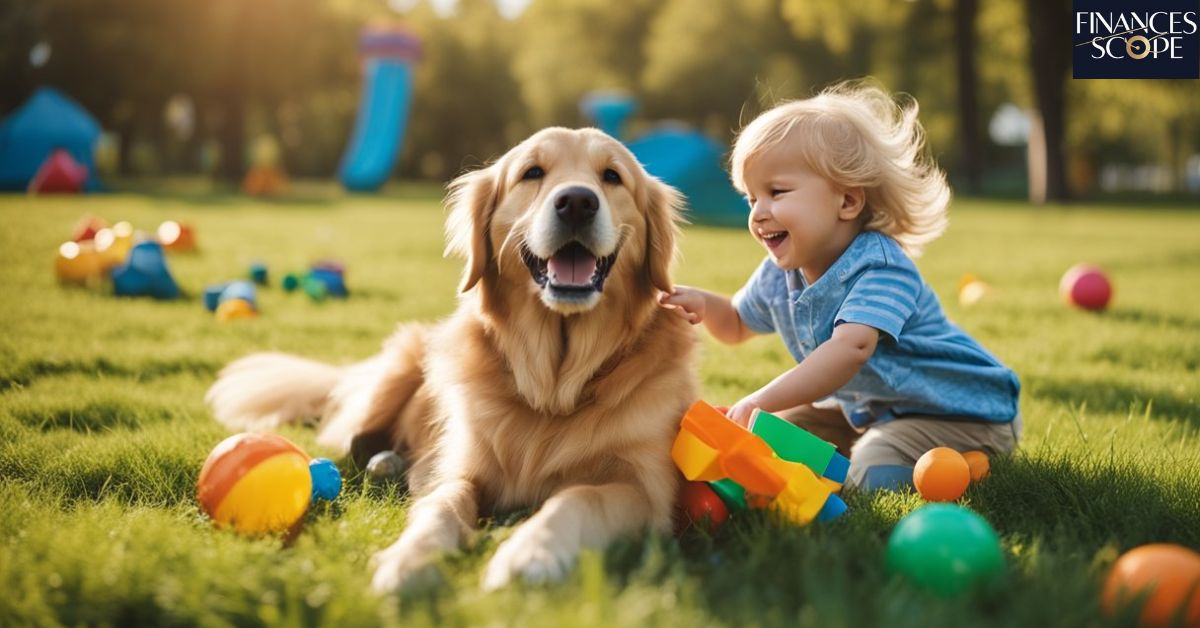A baby dog, also known as a puppy, is a young canine full of energy and playfulness. Puppies need care and training as they grow. They bring joy and love to any home.
Discover the joy of a baby dog—full of cuteness and endless energy! A puppy brings laughter and love to every home. Ready for a loyal, furry friend?
A baby dog, or puppy, needs lots of love, care, and attention. They are curious and learn quickly, making early training important. Puppies bring happiness and energy to any family.
The Benefits Of Growing Up With A Dog
Growing up with a dog offers many benefits. Dogs provide unconditional love and companionship.
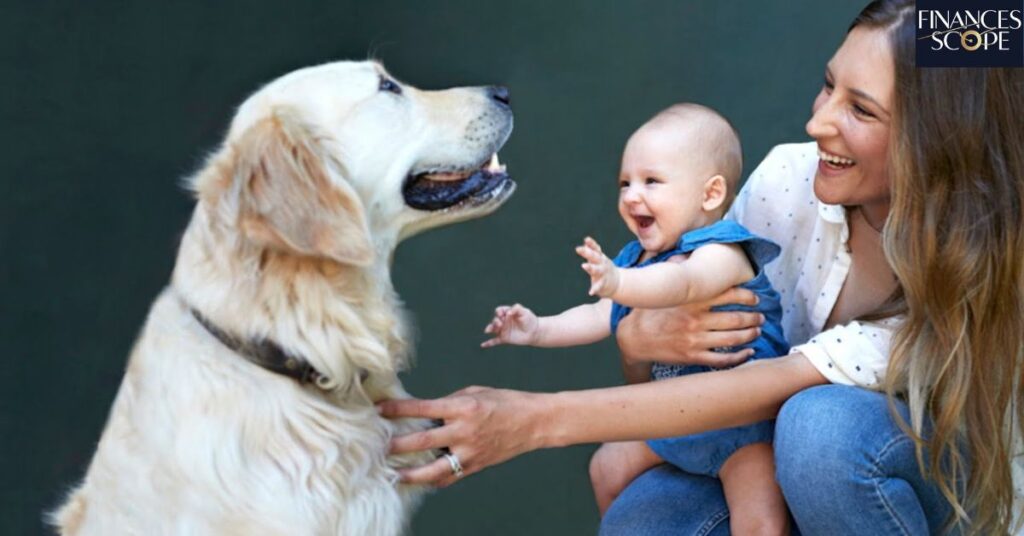
This bond can enhance a child’s emotional development. Children with dogs often have better physical health. They also learn important social skills through interaction.
Emotional Development
Dogs provide unconditional love. This support is crucial for a child’s emotional growth. A loyal dog helps babies feel secure and loved, fostering a sense of stability.
Physical Health Benefits
Having a dog encourages physical activity. Regular walks and playtime promote a child’s overall physical health. Studies show that children with dogs have a stronger immune system and a reduced risk of allergies.
Social Skills Improvement
Interacting with a dog teaches important social skills. Children learn to communicate, share, and empathize. These skills help develop better relationships with peers and adults.
Choosing The Right Dog For Your Family
Choosing the right dog is essential for a happy home. Consider your living space and lifestyle.
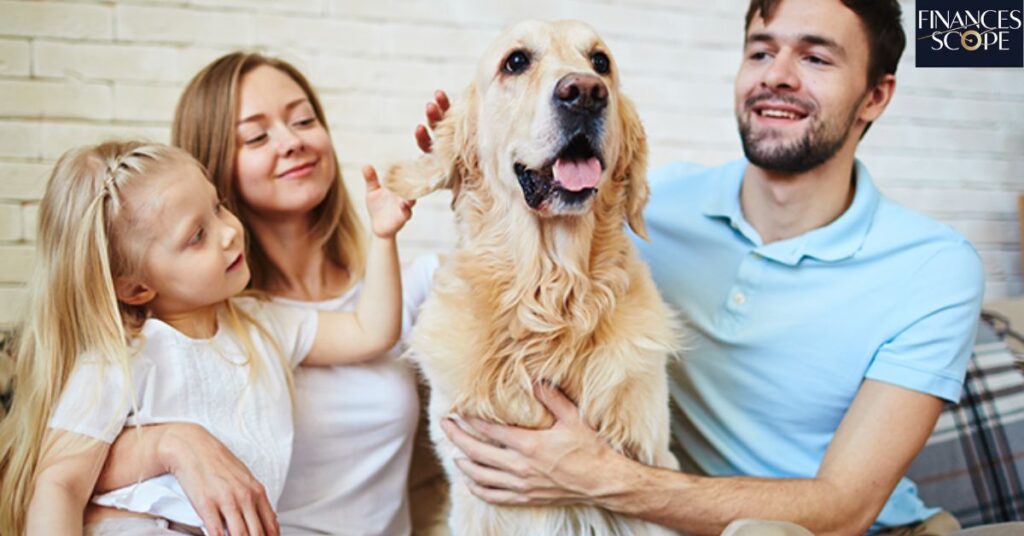
Research breeds known for their gentle temperaments. Assess the age and size of the dog as well. Finding a good match ensures harmony in the family.
Consider Your Living Space
Evaluate your living environment. Some dog breeds are better suited for apartments, while others thrive in homes with yards. Make sure your living space can accommodate the chosen dog’s needs.
Assessing Temperament And Breed
Research different breeds. Each breed has its own temperament. Look for breeds known for being gentle and patient with children.
Age And Size Of The Dog
Consider the age and size of the dog. Puppies require a lot of training and attention. Larger dogs might unintentionally harm small children, so an adult dog may be a better choice.
Preparing Your Home For A Baby And A Dog
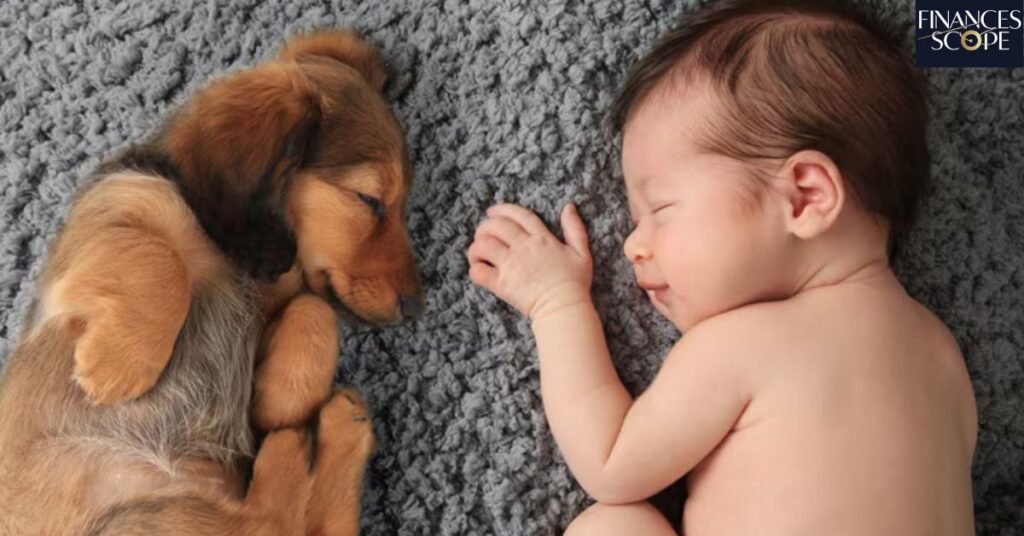
Preparing your home is crucial for both baby and dog. Create safe spaces using baby gates and playpens. Introduce your dog to baby items like cribs and toys. This helps reduce anxiety when the baby arrives. A well-prepared home promotes a smooth transition.
Creating Safe Spaces
Designate specific safe areas in your home. Use baby gates and playpens to create boundaries between the baby and the dog.
Introducing The Dog To Baby Items
Introduce your dog to baby items like cribs, strollers, and toys. This gradual exposure helps reduce anxiety when the baby arrives.
Training and Socializing Your Dog
Training and socializing your dog is crucial for a harmonious home. Start with basic commands to ensure good behavior. Socialize your dog with other pets and people regularly. Use positive reinforcement to encourage desirable actions. A well-trained dog is safer around your baby.
Read This Blog: Banana:b4hnuk08dew= Monkey: A Sweet Bond Between Fruit and Animal
Introducing Your Baby To Your Dog
Introducing your baby to your dog should be a calm process. Start with letting the dog sniff a blanket with the baby’s scent.

Gradually bring the baby closer under supervision. Monitor their interactions for any signs of stress. Positive introductions build a strong bond.
Step-by-Step Introduction Process
Start by letting the dog sniff a blanket with the baby’s scent. Gradually introduce the baby in a calm and controlled environment.
Monitoring Initial Interactions
Always supervise initial interactions. Look for signs of stress or discomfort in your dog. Positive experiences during these first encounters are crucial for a healthy relationship.
Positive Reinforcement Techniques
Use positive reinforcement to encourage good behavior. Reward your dog with treats and praise when they interact gently with the baby. This creates positive associations.
Ensuring Safety And Harmony
Safety is paramount when babies and dogs interact. Always supervise their time together.
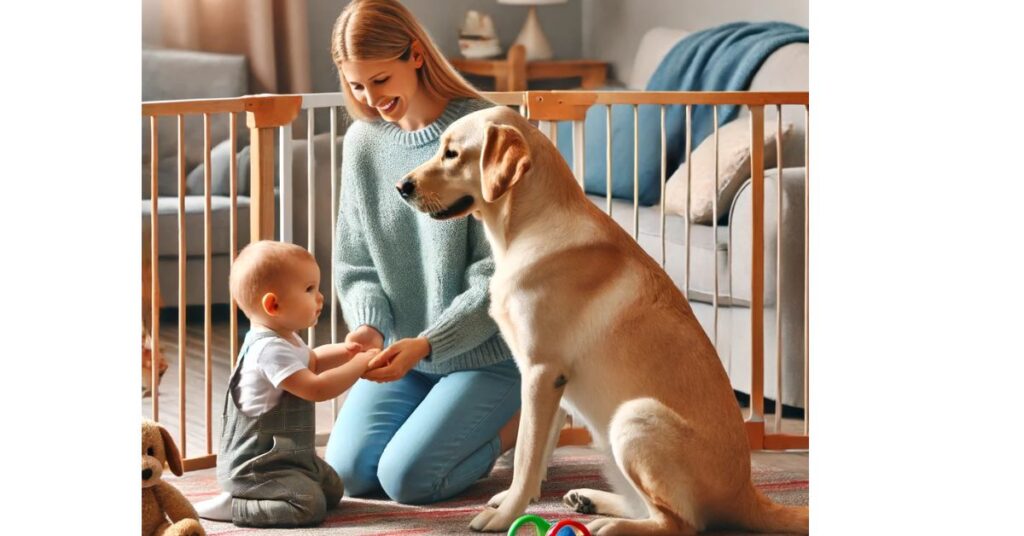
Teach your baby to handle the dog with a gentle touch. Recognize stress signals from your dog to prevent issues. Creating a respectful environment fosters harmony.
Supervising Baby And Dog Interactions
Never leave your baby and dog unsupervised. Even the gentlest dog can have unpredictable moments. Constant supervision ensures safety for both.
Teaching Gentle Touch And Play
Teach your baby how to interact gently with the dog. Show them how to pet softly and avoid pulling ears or tails. Gentle play fosters a respectful relationship.
Recognizing Stress Signals In Dogs
Learn to identify signs of stress in your dog, such as growling, whining, or avoiding interaction. Understanding these signals allows you to intervene if necessary.
Creating A Routine That Works For Both
Establishing a routine benefits both your baby and dog. Schedule regular feeding and playtime for both.
Predictable routines help everyone feel more secure. Balance your attention to avoid feelings of neglect. A consistent routine supports healthy development.
Balancing Attention And Care
Ensure that both your baby and dog receive adequate attention. Balancing your time helps prevent feelings of neglect.
Scheduling Feeding And Playtime
Establish a consistent feeding and playtime routine. Predictable schedules help both your baby and dog feel secure.
Adjusting To Changes In Routine
Be prepared for changes in routine as your baby grows. Flexibility is essential in adapting to new developmental stages.
Common Challenges And Solutions
Facing challenges is part of having a baby and a dog. Jealousy can arise, so involve your dog in baby activities.
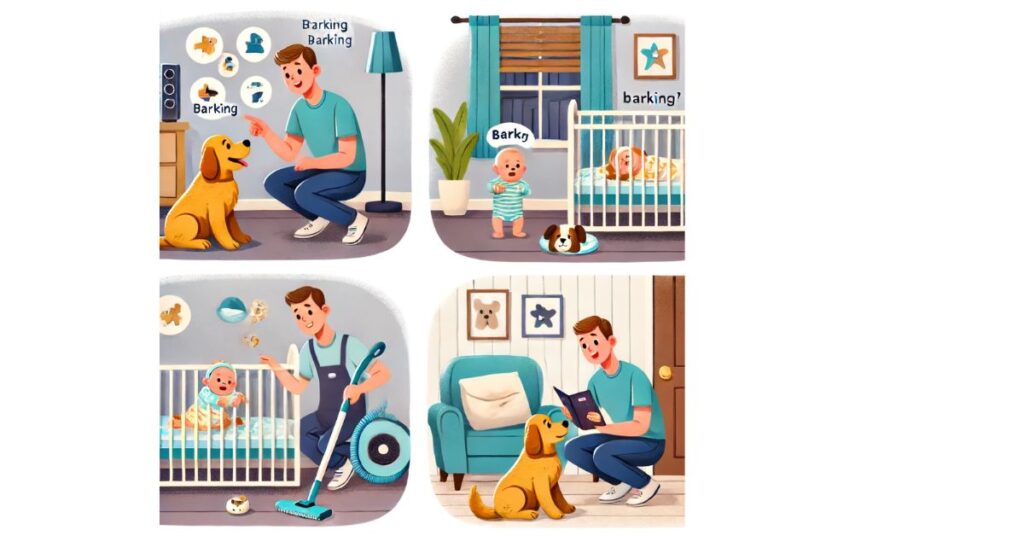
Manage barking through training and exercise. Address any allergies promptly with professional advice. Being proactive helps maintain a peaceful household.
Dealing With Jealousy
Dogs can feel jealous when a new baby arrives. Combat this by involving your dog in baby-related activities and ensuring they still receive attention.
Managing Barking And Noise
Babies need a quiet environment for napping. Train your dog to bark less and provide plenty of exercise to keep them calm.
Addressing Allergies
If your baby develops allergies, consult a pediatrician and veterinarian. Regular grooming and cleaning can help manage pet allergies.
Health Considerations For Babies And Dogs
Health is a critical aspect when you have a baby and a dog. Ensure your dog is up-to-date on vaccinations.
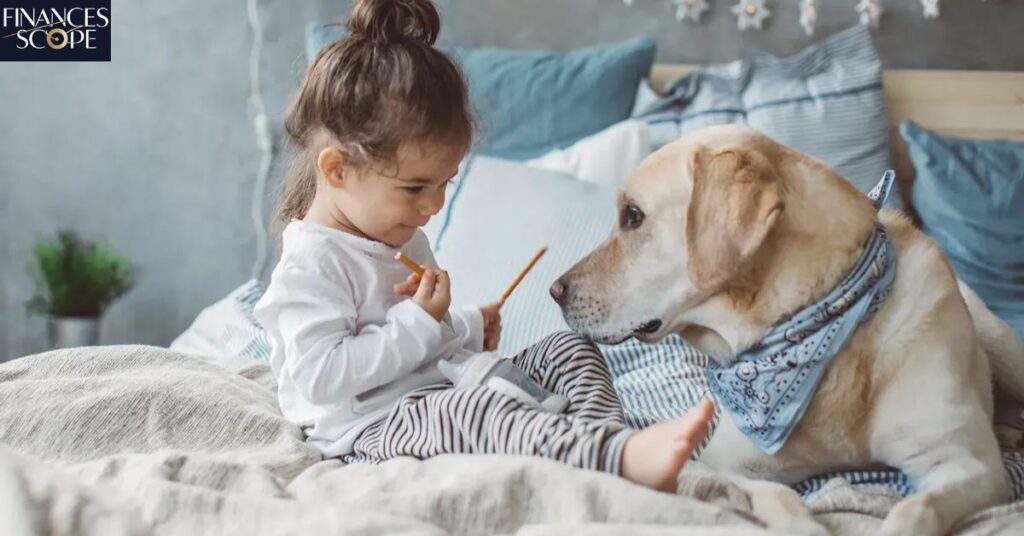
Regular health checks help prevent any issues. Maintain good hygiene to keep both safe. A healthy dog contributes to a safer environment for your baby.
Vaccinations And Health Checks
Ensure your dog is up-to-date on vaccinations and health checks. A healthy dog poses fewer risks to your baby.
Hygiene Practices
Maintain good hygiene by washing your hands after handling your dog. Keep your home clean to reduce allergens and germs.
Handling Illnesses
If your dog or baby becomes ill, take appropriate measures to prevent the spread of illness. Isolate the sick individual and consult healthcare professionals if needed.
The Role Of Play And Exercise
Play and exercise are essential for both baby and dog. Regular physical activity promotes health and happiness.
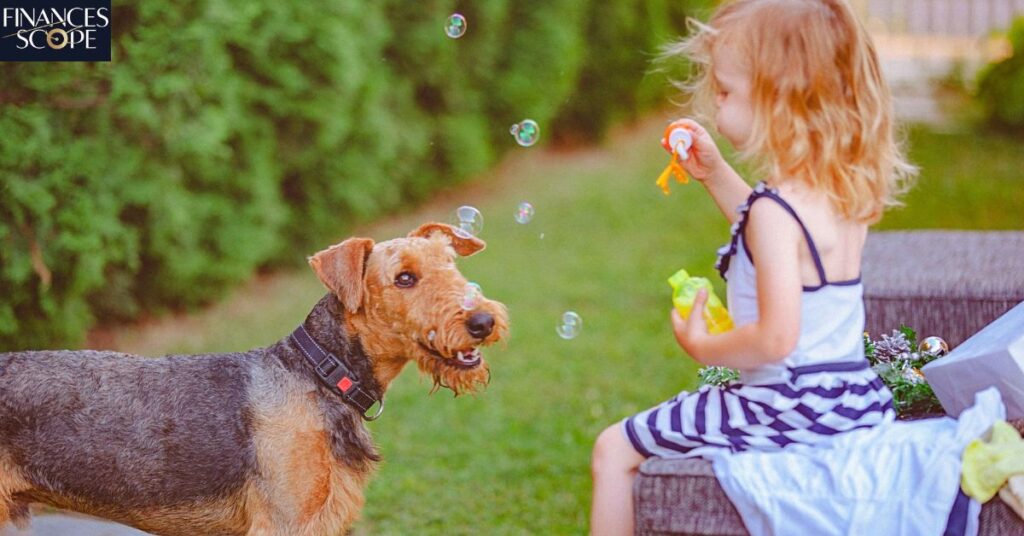
Take your dog for daily walks and let them play outside. Babies enjoy interactive play that can involve the dog too. This shared time strengthens their bond.
Importance Of Physical Activity
Encourage physical activity for both babies and dogs. Outdoor play and walks promote health and bonding.
Safe Toys And Games
Provide safe toys and games that both your baby and dog can enjoy. Avoid toys with small parts that could pose choking hazards.
Encouraging Joint Playtime
Facilitate joint playtime to strengthen the bond between your baby and dog. Simple activities like fetch or gentle tug-of-war can be enjoyable for both.
Nurturing A Lifelong Bond
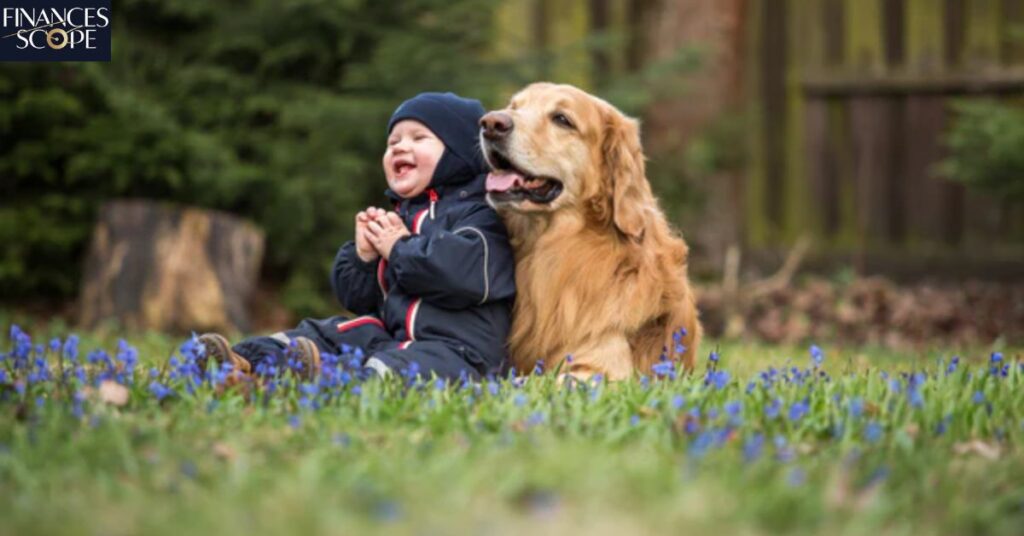
Building a lifelong bond takes time and effort. Show consistent love and affection to both your baby and dog. Celebrate milestones together to create lasting memories. Encourage mutual respect between them as they grow. A strong bond enriches their lives immensely.
Building Trust And Affection
A strong bond is built on trust and affection. Show consistent love and care to foster a deep connection between your baby and dog.
Celebrating Milestones Together
Celebrate milestones, such as your baby’s first steps or your dog’s training achievements. Shared experiences create lasting memories.
Encouraging Mutual Respect
Teach your baby to respect the dog’s space and needs. Likewise, train your dog to be gentle and patient with your baby. Mutual respect is vital for a harmonious relationship.
Dealing With The Unexpected
Unexpected challenges can arise with a baby and a dog. Be prepared for accidents and behavioral issues. Stay calm and handle situations promptly. Knowing when to seek professional help is important. Flexibility and patience will guide you through tough times.
Handling Behavioral Issues
Address behavioral issues promptly. Consult a professional trainer if needed to help manage any problematic behaviors.
Coping with Accidents And Injuries
Accidents happen. Be prepared to handle minor injuries with a first aid kit and know when to seek veterinary or medical help.
Seeking Professional Help
If challenges arise, don’t hesitate to seek professional help. Trainers, veterinarians, and pediatricians can provide valuable guidance.
Read This Blog: Drawing:a4z_-ymtkr8= Cat
Educational Resources And Support
Utilizing educational resources can enhance your experience. Look for books and online articles about raising babies and dogs together.
Join support groups to share experiences and advice. Consider training classes for both your dog and parenting skills. Knowledge empowers you to make informed decisions.
Books And Online Resources
Utilize books and online resources for tips and advice on raising babies and dogs together. Knowledge is power in fostering a harmonious household.
Training Classes And Workshops
Enroll in training classes and workshops to improve your dog’s behavior and your parenting skills. These sessions provide practical tools and support.
Support Groups And Communities
Join support groups and online communities for parents and pet owners. Sharing experiences and advice can be beneficial.
Frequently Asked Questions
How do I introduce my baby to my dog for the first time?
Start by letting the dog sniff a blanket with the baby’s scent, then gradually introduce them in a calm, controlled environment.
What are the best dog breeds for families with babies?
Breeds known for their gentle and patient temperaments, such as Golden Retrievers, Labradors, and Beagles, are often recommended for families with babies.
How can I ensure my dog doesn’t feel neglected after the baby arrives?
Balance attention and care by involving your dog in baby-related activities and maintaining a consistent routine.
What should I do if my dog shows signs of aggression towards my baby?
Seek professional help immediately. A trainer or veterinarian can guide you in managing and mitigating aggressive behavior.
Are there any health risks associated with having a dog and a baby together?
The risks are minimal with proper hygiene and health checks. Ensure your dog is vaccinated, keep your home clean, and consult healthcare professionals if you have any concerns.
Conclusion
Raising a baby alongside a dog can be one of the most rewarding experiences. The bond that forms between them is special and filled with joy. Both can benefit immensely from this relationship.
Dogs provide unconditional love and companionship, which helps with a child’s emotional and social development. Babies learn important life skills through their interactions with dogs. These skills include communication, empathy, and sharing.

Marcus Delgado is a certified financial planner with expertise in retirement strategies and tax optimization.
With a background in economics and a passion for helping individuals achieve financial freedom, Marcus provides practical advice on long-term wealth building and smart money management.
